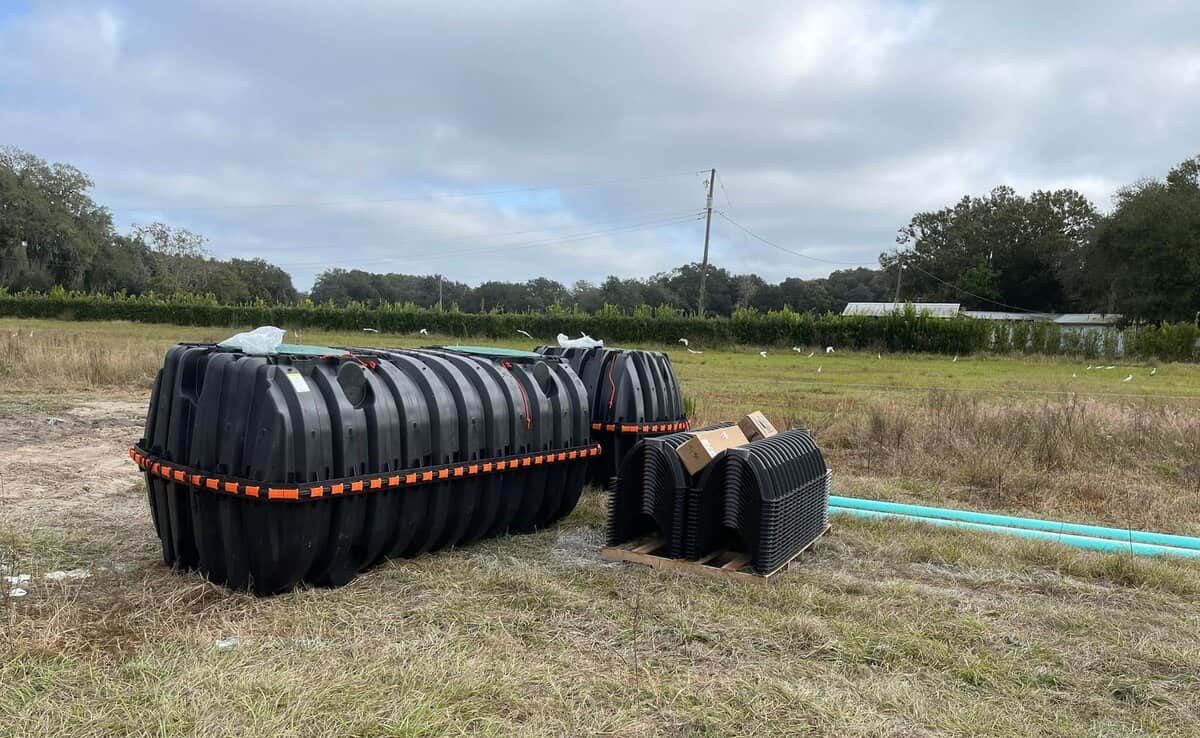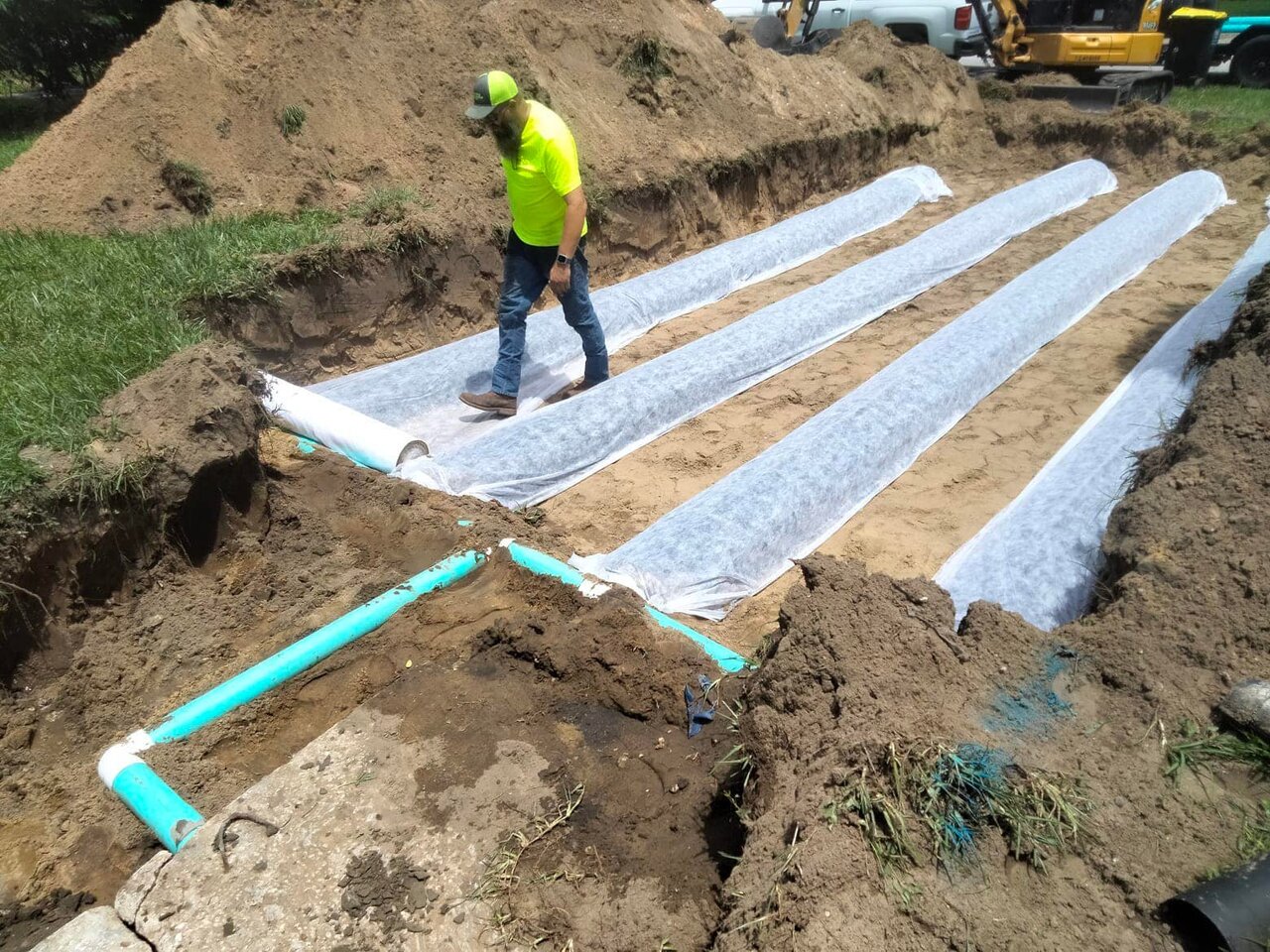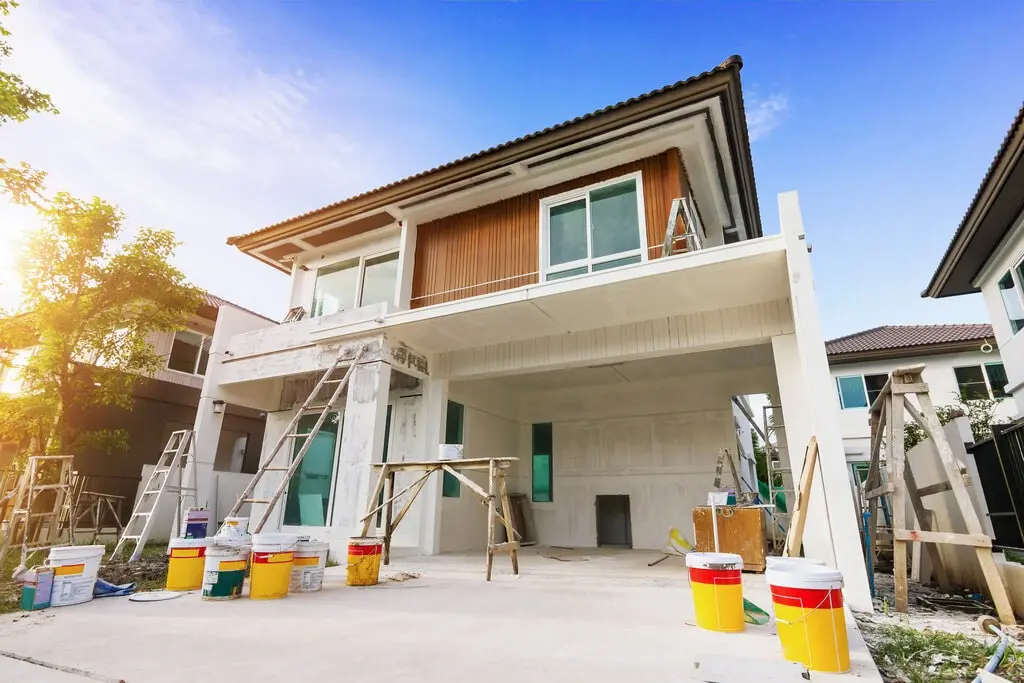Septic systems are an essential component of many homes and properties throughout the country where access to city sewer systems is limited. In fact, according to the American Housing Survey, approximately 21,718,000 homes in the U.S. use a septic tank or cesspool.
The majority of septic systems are what is considered underground, but in certain situations, an above-ground system may be utilized.
Each type of septic system has its advantages and disadvantages, and choosing the right one comes down to a variety of different factors. Understanding the basics of each system can help homeowners and property owners make informed decisions about septic system installation and maintenance.
Above Ground vs. Underground Septic Systems: Which is Right for You?
Underground and above-ground septic systems both are used to process and decontaminate wastewater before allowing it to reenter the environment.
Underground
An underground septic system works by utilizing a series of pipes, tanks, and drains to separate wastewater from solid waste. Wastewater flows through the pipes and enters a large tank where it is treated with bacteria to remove contaminants. The wastewater then enters a drainage field where it is distributed evenly throughout the soil and naturally absorbed into the ground.
Above Ground
An above-ground septic system differs in that it uses tanks that are placed above ground instead of underground. These tanks are made of durable materials such as concrete or fiberglass and are designed to store wastewater without leaking any contaminants into the environment.
The wastewater is then sent through a distribution box which distributes the water across several laterals, or lines, that lead to either an absorption area or a mix and pump chamber.
The absorption area allows for the wastewater to be naturally absorbed into the surrounding soil and filtered, while the mix and pump chamber sends effluent back up to higher points on the property for further treatment before being discharged into public waterways.
Why Above Ground Instead of Underground?
Above-ground systems are often used in areas where soil conditions make traditional underground systems unsuitable. Areas with high water-table levels, frozen soils, and flooding can all be problematic for septic system installation.
In addition, in certain regions, it may be difficult to find enough land available on a property to accommodate an underground system. In these cases, an above-ground system is often the best option.
Pros and Cons of Above-Ground Septic Systems
Underground and above-ground septic systems both serve to process wastewater from a home or business. The two operate in similar ways, but there are some advantages and disadvantages to each.
Pros of Above-Ground Septic Systems
- Easier to inspect and maintain: Above-ground septic systems are easier to access for regular maintenance, cleaning, and inspection than underground systems.
- Lower risk of contamination: With no groundwater contamination, above-ground systems are less prone to harmful bacteria spread and potential contamination.
- More suitable for rocky areas: Installation of above-ground systems is often more feasible in areas with rocky soil or terrain because digging underground is not required.
- Increased adaptability: Above-ground septic systems can be easier to adapt to changing needs as the property evolves or grows.
Cons of Above-Ground Septic Systems
- Less visually appealing: The above-ground system can be an eyesore and affect the property’s appearance and value.
- Higher risks of damage: Above-ground septic systems may be more prone to accidental damage or exposure to extreme weather conditions that could lead to malfunction and expensive repairs.
- Higher Cost: Above-ground systems are more expensive than conventional underground systems, which can be a significant consideration for those on a budget.
Above-Ground Septic System Maintenance Tips
Like most other components of a home, septic systems require ongoing maintenance to extend their life and ensure that they continue to function as intended.
Here is a list of maintenance tips for owners of above-ground septic systems:
Regular Inspections
Above-ground septic systems should be inspected at least once a year by a licensed professional. The septic inspection should include checking tank levels, evaluating the distribution box, and assessing the drainage field for potential problems.
Routing Pumping and Cleaning
Regular septic tank services should include proper pumping and maintenance of the tank by a septic professional every 3 to 5 years. Failure to properly clean the tank can result in backups and overflows, which can be costly and hazardous to the environment.
Be Mindful of What Goes in the System
It is essential to be mindful of what gets put down the drain and flushed into the system. Items like grease, paper towels, and feminine hygiene products should never go down the drain, as they can quickly fill the tank and cause blockages.
Maintain the Vegetative Cover
The vegetative cover over the septic drain field should be maintained and not disturbed. The roots of the plants help to absorb excess water and nutrients from the soil, which can help to avoid damage to the field. However, it is important to only use plants with shallow root systems, as the strong roots from trees or large shrubs can disrupt the proper functioning of the drainfield.
Avoid Harsh Chemicals
Avoid using harsh chemicals like bleach or drain cleaners to clean your home, as they can kill off good bacteria in the tank that are needed to break down waste. Instead, consider using septic-safe cleaners or do-it-yourself cleaning alternatives.
Taking care of an above-ground septic system is largely the same as caring for an underground septic system. Ongoing care is essential for it to function and last for many years. Proper maintenance can help to ensure that the system functions safely and effectively while preventing costly repairs and environmental damage.
Septic Service In & Near Lakeland
Septic & Drainfield Depot is the best choice when you need a septic company in and near Lakeland. Our services are available 24/7, since we know that when there is a problem with your septic system, it needs to be addressed immediately.
As a licensed septic contractor in the state of Florida, we have a team of well-trained and experienced septic technicians standing by to meet all your septic needs.
When you need a septic company, you need Septic and Drainfield Depot. Contact us today for a free estimate!







